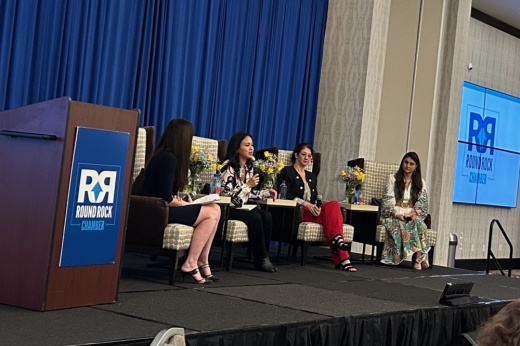Responses have been edited for length and clarity.
Fleming to Lo: Give us a little more insight on what inspired you to start your own company, Red Velvet, when and what was the biggest risk you took, good or bad, that made an impact on where you are today.
Lo: At [The University of Texas] when I was a student there, I was always naturally volunteering to organize this and organize that. They said, “You should do this for a living.” In my head, I kid you not, I always thought that you either owned a hotel to do events, or you did it for free. I didn't realize that there was an in between. ... I tried initially to go work for someone. But here's what's interesting. Again, I didn't understand how everything had changed post-9/11. So no one was hiring. Since I didn't have any formal experience, everyone saw me as a risk. So the reason why I started it was because honestly out of stubbornness and naivety, and I went ahead and just did it using what I learned from UT. The biggest risk also kind of led me to my biggest success, which is I didn't know how badly I can fail. I tell this to people all the time that if you really have nothing to lose, what is stopping you?
Fleming to Belcher: I'm very impressed with the strides you've made. You [took] your experience, expertise and government and passion for improving health care to create Texas Health Alliance 13 years ago. So tell us, what it was like to take that passion of yours and turn it into a successful business?
Belcher: I had decided to take a break in 2009 from the Capitol. I was 20 years old. I went to a little boutique consulting firm, and I was working with a lot of big companies. At that point in time, the federal government had put a bunch of money out to incentivize the purchase of electronic medical records and that sort of thing. I came out of government, and they were like, “No, really, everyone else has an association.” ... Health tech companies were literally running around the Capitol trying to kill each other's legislation in 2009 because there was no mediator; there was nobody to stand in federal and say, “Oh, we're hearing mutual interests, drop your weapons.” I was trained to do that because I came up through the Texas Medicaid program on working with stakeholders.
Fleming: You've both alluded to it, but if you could maybe just give one piece of advice for anyone here that might be thinking about taking that leap, just starting their own business?
Lo: If you really can do it and know your numbers, that is the biggest thing. If you are not a numbers person, you better find someone that does know numbers. Because [profits and losses] don't lie.
Belcher: If you cannot elevator pitch what you are trying to do, do the work until you can. Because you can, you just have to put the work and the effort into that.
Fleming to Roscoe: Historically, the professional sports industry has not been known for having many women in leadership positions. Can you share any challenges that this may have posed as you were growing your career and how you've overcome them?
Roscoe: I came up through sports at a time when it was starting to shift. You were starting to see some more women in sports, but the biggest difference was women on the other side, right? I work in partnerships. You have meetings and client relations and all these things. What propelled me in my career was that we would take all these meetings, and on the other side of the table, there was a woman or two on the other side. In the sports world, in the sales department, if you will, is a bunch of men. So we had to balance that out. I couldn't not have a woman represented in our meeting with the pistons, and we're trying to sell them a big sponsorship deal. They'd bring me along 100% [for] optics, and I sort of knew my role. But then as I got more confident, I had a voice, I had an opinion and I had an idea. Then it became more and more that like, Oh, she knows what she's talking about. You take those moments, and you grab onto them, like, “Alright, I'm gonna make this a positive for me.” I also had leadership that believed in what I was doing.





